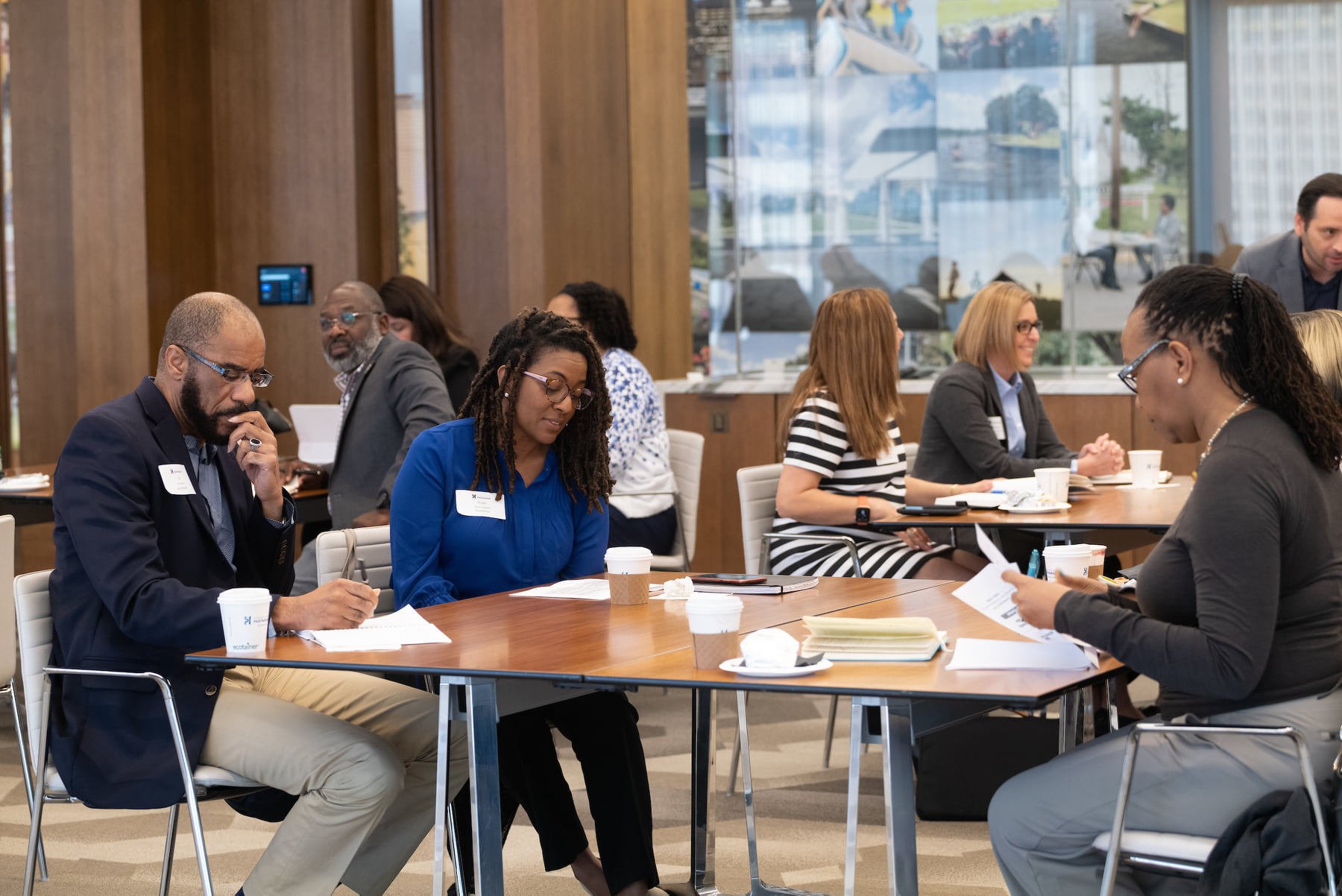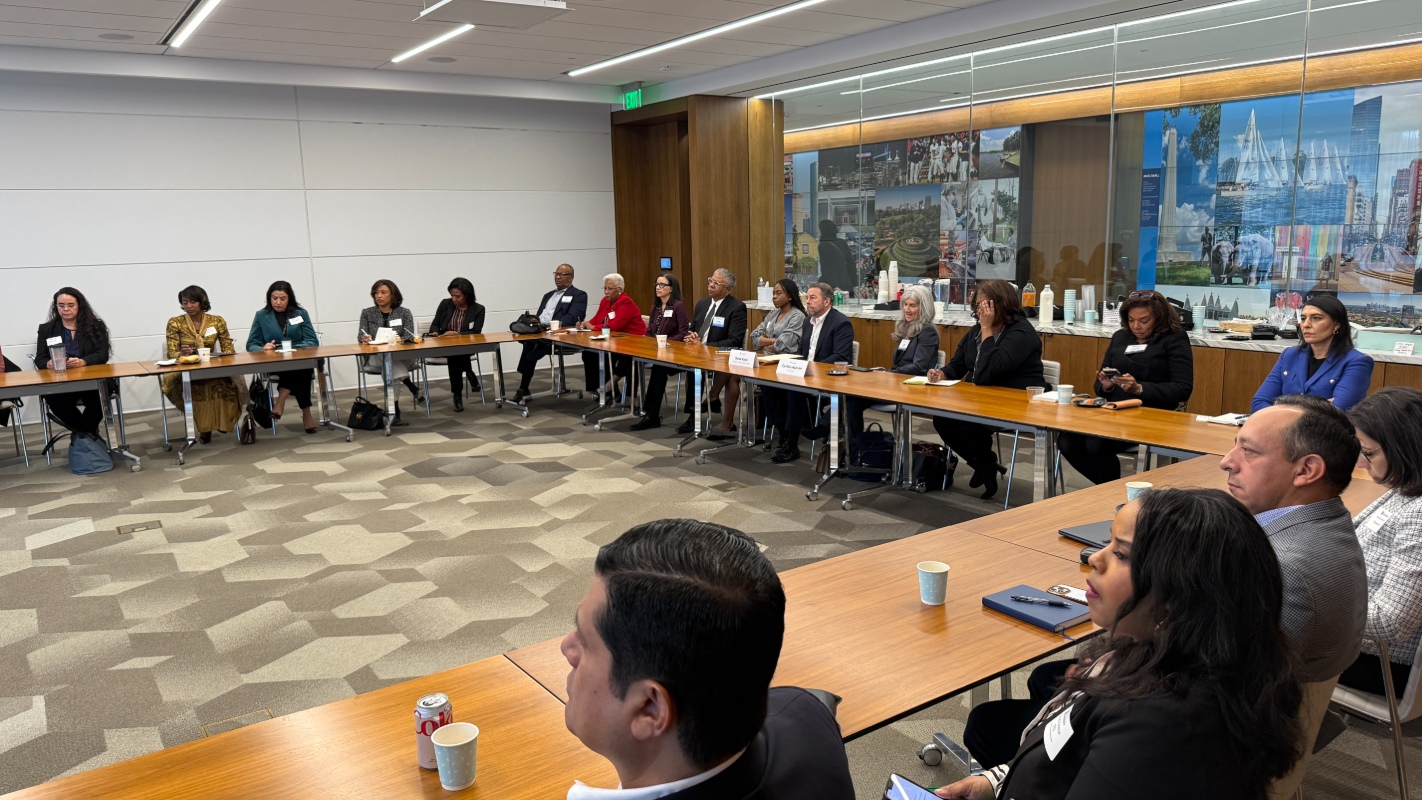One Houston Together: Bridging the Gap Between Talent and Opportunity
Published Jul 14, 2023 by Brina Morales
As companies look to diversify their talent pipeline and create mobility, many are utilizing apprenticeship programs and skills-based hiring as tools to create diverse teams and foster inclusive environments.
On June 21, the Partnership’s One Houston Together Talent Roundtable convened Partnership members Accenture and Aon and workforce leader Opportunity@Work to highlight successful tools they are using to advance talent diversity in deliberate and measurable ways.
Sarah Hilchie, Management Consulting Principal of Leadership and Culture at Accenture, discussed the importance of building an inclusive culture within a company. Hilchie said building culture often becomes a low priority because a company may find it challenging to quantify the impact of culture, and a perception gap often exists between C-suite leaders and employees.
“True leaders, bold leaders understand that it is not only their responsibility but that they have the power to change the climate in their organization every day by what they say, what they do, and how they reward behavior,” she said. Hilchie added companies should assess who their leaders are by asking the following questions:
- Are leaders taking action to create greater equity?
- Do their words mirror their actions?
- What kinds of things are they saying about the organization outside of the office whether that be social media, press, or word of mouth?
Accenture research shows “when there is an inclusive culture and a high rate of trust, there is a 27% reduction in attrition, 50% higher productivity and 40% less burnout,” Hilchie said. Hilchie went on to share that "accountability and metrics such as talent equity or culture assessments that leverage company's employee feedback and data, are critical to building an inclusive culture and ensuring that culture remains a priority for leadership and employees. Leaders will continue to replicate the past if they aren't committed to rebuilding an equitable workplace and that begins with taking action from a place of understanding."
Opportunity@Work, a nonprofit organization that aims to rewire the labor market by helping companies see the benefits of skills-based hiring instead of solely focusing on four-year college degrees, has seen great success with its Skilled Through Alternative Routes or STARs model. Bridgette Gray, the nonprofit organization’s Chief Customer Officer, spoke about the need for employers to diversify talent acquisition by identifying the actual skills people need for roles.
"There is no lack of talent, employers just need to change the sourcing of their talent,” Gray said. According to Opportunity@Work, workers Skilled Through Alternative Routes have been displaced from 7.4 million jobs as employers have shifted to relying on degrees over skills, creating an opportunity gap.
Meghan Parrilla, Vice President of Global Early Careers Apprenticeships at Aon, discussed the company’s two-year, full-time apprenticeship program. Through the program, which welcomes about 100 apprentices each year, the participants pursue an associate degree. Aon’s program is a national model and is unique due to its partnerships with local community colleges, local nonprofit organizations that provide wraparound services or serve as career navigators for participants, and the support and time commitment Aon’s staff in leadership or management roles provides participants.
Parrilla hopes more companies will see the benefits of apprenticeships and consider people who have participated in similar programs as “equal to those who have completed a four-year college degree.”
In 2021, Accenture and Aon, with support from the Greater Houston Partnership, launched the Greater Houston Apprenticeship Network to promote and support apprentice programs across companies in Houston. Get connected and learn about opportunities by visiting this page.
To learn more about skills-based hiring and other member best practices to accelerate your company’s talent strategy and diversity your pipeline, join the Partnership's Talent Roundtable.
 The Houston Report
The Houston Report




















